A

- John M. Allegro (1923–1988) – English archaeologist. [2]
This is a partial list of people who have been categorized as Christ myth theory proponents, the belief that "the historical Jesus did not exist. Or if he did, he had virtually nothing to do with the founding of Christianity". [1]

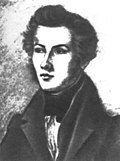
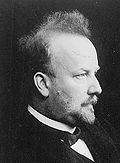
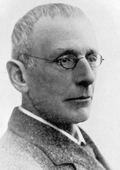
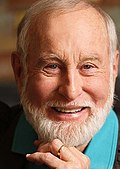
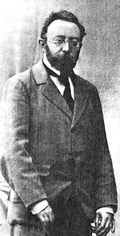
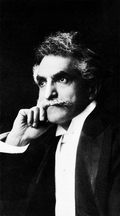
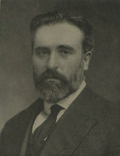

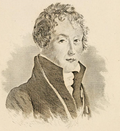
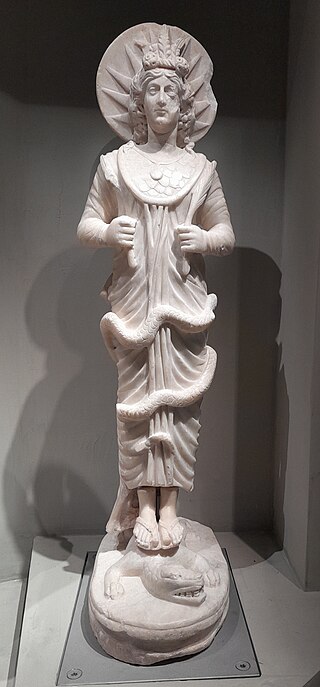
Dionysus-Osiris, alternatively Osiris-Dionysus, is a deity arising from the syncretism of the Egyptian god Osiris and the Greek god Dionysus.
George Albert Wells was an English scholar who served as Professor of German at Birkbeck, University of London. After writing books about famous European intellectuals, such as Johann Gottfried Herder and Franz Grillparzer, he turned to the study of the historicity of Jesus, starting with his book The Jesus of the Early Christians in 1971. He is best known as an advocate of the thesis that Jesus is essentially a mythical rather than a historical figure, a theory that was pioneered by German biblical scholars such as Bruno Bauer and Arthur Drews.
Earl J. Doherty is a Canadian author of The Jesus Puzzle (1999), Challenging the Verdict (2001), and Jesus: Neither God Nor Man (2009). Doherty argues for a version of the Christ myth theory, the thesis that Jesus did not exist as a historical figure. Doherty says that Paul thought of Jesus as a spiritual being executed in a spiritual realm.
The historicity of Jesus is the question of whether Jesus historically existed. The question of historicity was generally settled in scholarship in the early 20th century. Today scholars agree that a Jewish man named Jesus of Nazareth did exist in the Herodian Kingdom of Judea and the subsequent Herodian tetrarchy in the 1st century AD, upon whose life and teachings Christianity was later constructed, but a distinction is made by scholars between 'the Jesus of history' and 'the Christ of faith'.
The World's Sixteen Crucified Saviors; Or, Christianity Before Christ, Containing New, Startling, and Extraordinary Revelations in Religious History, which Disclose the Oriental Origin of All the Doctrines, Principles, Precepts, and Miracles of the Christian New Testament, and Furnishing a Key for Unlocking Many of Its Sacred Mysteries, Besides Comprising the History of 16 Heathen Crucified Gods is an 1875 non-fiction book written by American freethinker Kersey Graves, which asserts that Jesus was not an actual person, but was a creation largely based on earlier stories of deities or god-men saviours who had been crucified and descended to and ascended from the underworld. Parts were reprinted in The Book Your Church Doesn't Want You to Read edited by Tim C. Leedom in 1994, and it was republished in its entirety in 2001.

The Christ myth theory, also known as the Jesus myth theory, Jesus mythicism, or the Jesus ahistoricity theory, is the fringe view that the story of Jesus is a work of mythology with no historical substance. Alternatively, in terms given by Bart Ehrman paraphrasing Earl Doherty, it is the view that "the historical Jesus did not exist. Or if he did, he had virtually nothing to do with the founding of Christianity."

The study of Jesus in comparative mythology is the examination of the narratives of the life of Jesus in the Christian gospels, traditions and theology, as they relate to Christianity and other religions. Although the vast majority of New Testament scholars and historians of the ancient Near East agree that Jesus existed as a historical figure, most secular historians also agree that the gospels contain large quantities of ahistorical legendary details mixed in with historical information about Jesus's life. The Synoptic Gospels of Mark, Matthew, and Luke are heavily shaped by Jewish tradition, with the Gospel of Matthew deliberately portraying Jesus as a "new Moses". Although it is highly unlikely that the authors of the Synoptic Gospels directly based any of their accounts on pagan mythology, it is possible that they may have subtly shaped their accounts of Jesus's healing miracles to resemble familiar Greek stories about miracles associated with Asclepius, the god of healing and medicine. The birth narratives of Matthew and Luke are usually seen by secular historians as legends designed to fulfill Jewish expectations about the Messiah.

The God Who Wasn't There is a 2005 independent documentary written and directed by Brian Flemming. The documentary questions the existence of Jesus, examining evidence that supports the Christ myth theory against the existence of a historical Jesus, as well as other aspects of Christianity.

Richard Cevantis Carrier is an American ancient historian. He is a long-time contributor to skeptical websites, including The Secular Web and Freethought Blogs. Carrier has published a number of books and articles on philosophy and religion in classical antiquity, discussing the development of early Christianity from a skeptical viewpoint, and concerning religion and morality in the modern world. He has publicly debated a number of scholars on the historical basis of the Bible and Christianity. He is a prominent advocate of the theory that Jesus did not exist, which he has argued in a number of his works. However, Carrier's methodology and conclusions in this field have proven controversial and unconvincing to most ancient historians, and he and his theories are often identified as fringe.

Robert McNair Price is an American New Testament scholar who argues in favor of the Christ myth theory – the claim that a historical Jesus did not exist. Price is the author of a number of books on biblical studies and the historicity of Jesus.
Radical criticism is a movement around the late 19th century that, typically, denied authentic authorship of the Pauline epistles. This went beyond the higher criticism of the Tübingen school which held that a core of at least four epistles had been written by Paul of Tarsus in the 1st century.

John Eleazer Remsburg was an ardent religious skeptic in America in the late 19th and early 20th centuries. In his book 1909 book The Christ, Remsburg lists forty-two ancient writers who did not mention Jesus or whose mentions are suspect, and this list has appeared in many subsequent books that question the historicity of Jesus. Remsburg himself wrote that the man Jesus may have existed, but that the Christ of the gospels is mythical.
Thomas L. Thompson is an American-born Danish biblical scholar and theologian. He was professor of theology at the University of Copenhagen from 1993 to 2009. He currently lives in Denmark.

Dorothy Milne Murdock, better known by her pen names Acharya S and D. M. Murdock, was an American writer supporting the Christ myth theory, which asserts that Jesus never existed as a historical person, but was rather a mingling of various pre-Christian myths, solar deities and dying-and-rising deities.
Harold Leidner was an American patent attorney and advocate of the Christ myth theory.
Philip Maurice Casey was a British scholar of New Testament and early Christianity. He was an emeritus professor at the University of Nottingham, having served there as Professor of New Testament Languages and Literature at the Department of Theology.
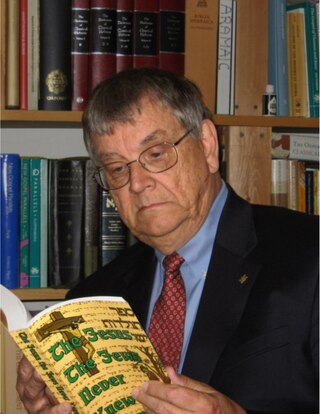
Frank R. Zindler is an American atheist who served as interim president of the atheist organization American Atheists in 2008.

The Christ Myth, first published in 1909, was a book by Arthur Drews on the Christ myth theory. Drews (1865–1935), along with Bruno Bauer (1809–1882) and Albert Kalthoff (1850–1906), is one of the three German pioneers of the denial of the existence of a historical Jesus.

Did Jesus Exist? The Historical Argument for Jesus of Nazareth is a 2012 book by Bart D. Ehrman, a scholar of the New Testament. In this book, written to counter the idea that there was never such a person as Jesus of Nazareth at all, Ehrman sets out to demonstrate the historical evidence for Jesus' existence, and he aims to state why all experts in the area agree that "whatever else you may think about Jesus, he certainly did exist."
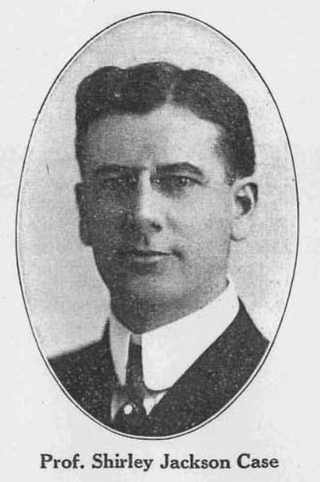
Shirley Jackson Case (1872–1947) was an historian of early Christianity, and a liberal theologian. He served as dean of the Divinity School at the University of Chicago.